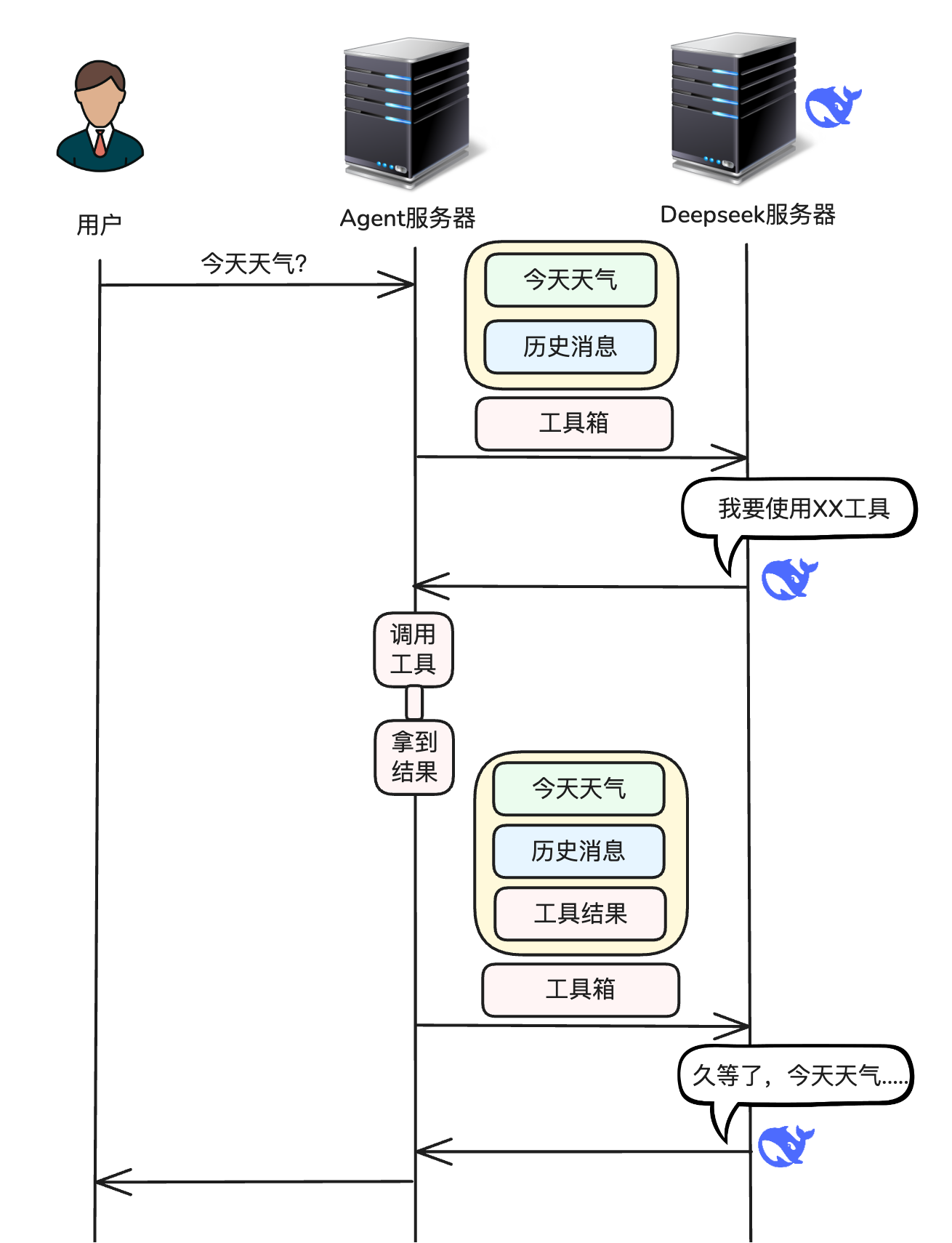
前面是通过 提示词 的形式,将工具箱带过去。
🙋这种方式有什么问题?
- 繁琐:大段大段的提示词,仅仅是为了约束大模型的输出
- 不标准:每个开发者的提示词的描述千差万别
- 约束力不高:即便使用了语气最重的提示词,大模型的底层原理决定了它总会有不按照要求回复的情况
为了解决这个问题,OpenAI 出手了,在 2023 年 6 月推出了 Function Calling,通过 JSON Schema 格式来进行标准化,主要标准两个部分:
-
工具箱的提供
// 工具箱 const tools = [{type: "function",name: "get_weather",description: "Get current temperature for provided coordinates in celsius.",parameters: {type: "object",properties: {latitude: { type: "number" },longitude: { type: "number" }},required: ["latitude", "longitude"],additionalProperties: false},strict: true }]; -
返回的调用工具请求
[{"type": "function_call","id": "fc_12345xyz","call_id": "call_12345xyz","name": "get_weather","arguments": "{\"latitude\":48.8566,\"longitude\":2.3522}" }]
可以在 OpenAI 官方文档 看到这个过程,也可以在 Playground 这里体验整个过程。
🤔 为什么采用 Function Calling 能约束大模型,让它要一定按照要求输出一个 JSON ?
其实就是大模型微调的效果。
也正因为如此,并非所有的模型都支持 Function Calling,可以在 Hugging Face 上面查询某一模型是否支持 Function Calling 特性。
[!note]
Hugging Face 是目前最主流的开源 AI 模型托管与使用平台,相当于 AI 界的 Github.
注意不同的模型,Function Calling的格式不一致。
deepseek
tools = [{"type": "function","function": {"name": "get_weather","description": "Get weather of an location","parameters": {"type": "object","properties": {"location": {"type": "string","description": "The city and state, e.g. San Francisco, CA",}},"required": ["location"]},}
}]
GPT
const tools = [{type: "function",name: "get_weather",description: "Get current temperature for provided coordinates in celsius.",parameters: {type: "object",properties: {latitude: { type: "number" },longitude: { type: "number" }},required: ["latitude", "longitude"],additionalProperties: false},strict: true
}];
claude
"tools": [{"name": "get_weather","description": "Get the current weather in a given location","input_schema": {"type": "object","properties": {"location": {"type": "string","description": "The city and state, e.g. San Francisco, CA"}},"required": ["location"]}
}],
我们使用 deepseek 模型:https://api-docs.deepseek.com/guides/function_calling
-EOF-
